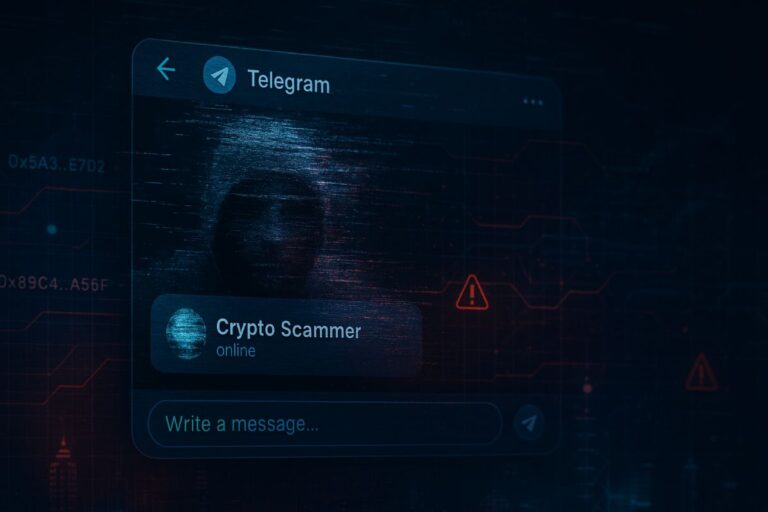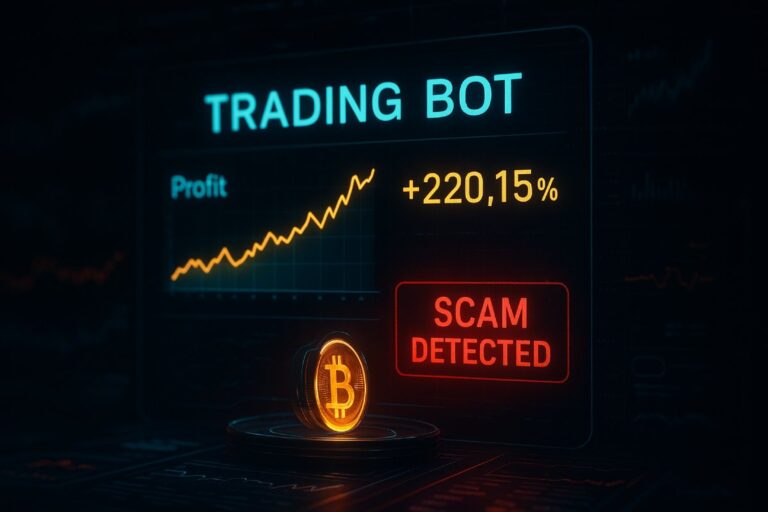The typical crypto scam follows a pattern: websites disappear, Telegram contacts block communication, and legitimate-seeming investments reveal themselves as elaborate deceptions. This triggers questions — “What do I do now? Who has jurisdiction?” — that often lead to inaction precisely when action becomes most critical. The scammer’s business model depends on this paralysis, banking on victims’ assumption that learning how to report crypto scams is futile in a decentralized system. In this guide, I’ll walk you through the concrete steps for reporting crypto scams and connecting with the resources that can help you take action.
Why Reporting a Crypto Scam Is Worth Your Time
- It Creates an Official Record: A police report is a crucial legal document that proves you were the victim of a crime.
- It Helps Protect Others: Your report provides valuable data to law enforcement that can help them identify patterns, warn the public, and target larger criminal networks.
- It Can Disrupt the Scammers: Reporting to exchanges can get the scammers’ accounts frozen, preventing them from cashing out or victimizing others with the same funds.
- It’s a Necessary Step for Any Potential Recovery: While difficult, any future legal or recovery action is impossible without an official report.
Step-by-Step Checklist for Reporting Crypto Scams
 Step 1: Gather All Your Evidence (Do Not Delete Anything!)
Step 1: Gather All Your Evidence (Do Not Delete Anything!)
Collect the following:
- Scammer’s Information: Wallet addresses, usernames, email addresses, phone numbers, website URLs.
- Transaction Details: Transaction IDs (hashes), dates, amounts, and the cryptocurrencies used.
- Communications: Screenshot all conversations (Telegram, WhatsApp, email, social media DMs). Do not crop the images.
- Advertisements/Websites: Save screenshots or PDFs of the website or ad that first lured you in.
 Step 2: File a Report with the Police
Step 2: File a Report with the Police
 Step 3: Notify Involved Exchanges and Platforms
Step 3: Notify Involved Exchanges and Platforms
 Step 4: Inform Financial Regulators
Step 4: Inform Financial Regulators
What to Expect and What to Avoid After Reporting Crypto Scams
- Manage Expectations: Recovering stolen crypto is extremely difficult and rare. The primary goal of reporting is justice and disruption, not necessarily recovery.
- Beware of Crypto Recovery Scams: Victims are often targeted a second time by scammers claiming they can recover lost funds for a fee. Legitimate law enforcement or investigative firms will not contact you out of the blue on social media promising recovery.
How a Professional Crypto Recovery Investigation Supports Your Case
- We Build a Stronger Case: Our expert reports trace the flow of your stolen crypto, identifying linked addresses and uncovering the infrastructure of the scam operation.
- We Follow the Money: Our on-chain investigators navigate complex transaction histories and mixers that can confuse traditional authorities.
- We Provide Clarity and a Path Forward: We give you a clear understanding of what happened to your funds, which can be crucial for legal proceedings or simply for your peace of mind.
Frequently Asked Questions
Where do I report a crypto scammer?
You should report a crypto scammer to your local police (in Hong Kong, use the Hong Kong Police Force’s e-Report Centre), the cryptocurrency exchange involved, and the relevant financial regulator (for Hong Kong, the Securities and Futures Commission). Gather all evidence before filing your reports.
Can you trace a crypto scammer?
Yes, professional crypto investigators can trace the flow of funds by analyzing blockchain transactions. While tracing does not guarantee recovery, it can identify linked wallet addresses and help uncover the scam’s infrastructure, strengthening your case for law enforcement or legal action.
What to do if you are scammed by cryptocurrency?
Immediately gather all evidence (wallet addresses, transaction IDs, communications, etc.), file a report with the police, notify any exchanges or platforms involved, and inform financial regulators. Be wary of “crypto recovery” scams that target victims again. Consider working with professional crypto investigation services to trace and document the scam.



